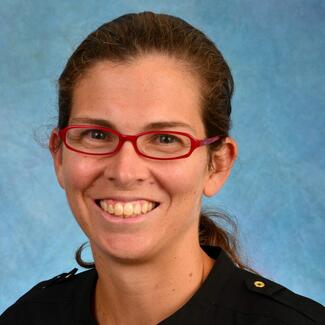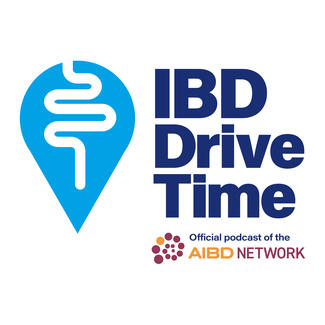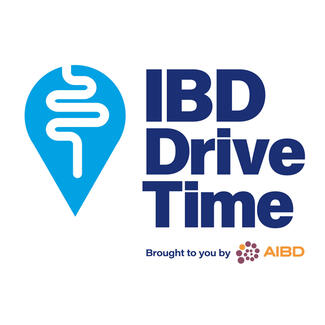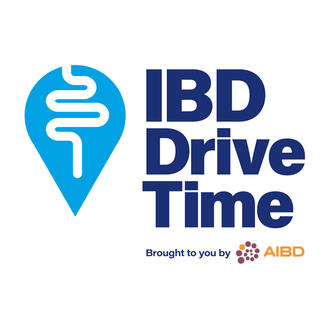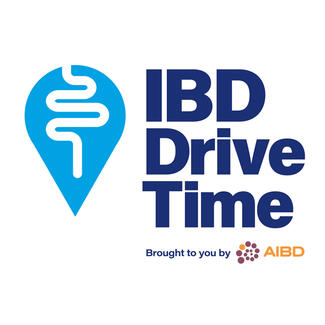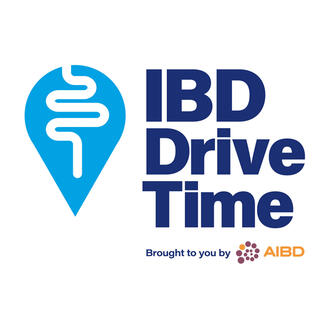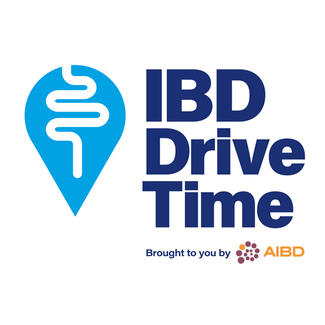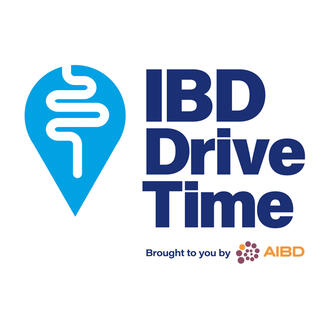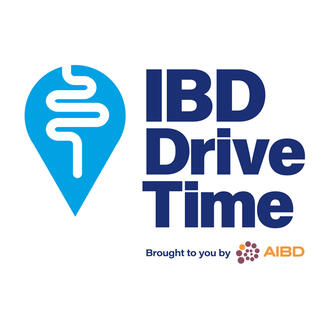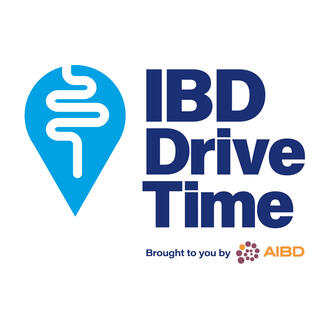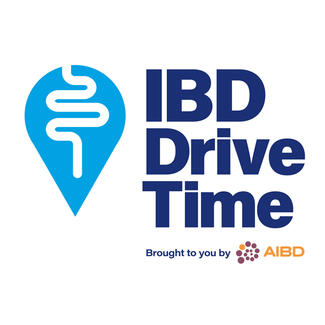IBD Drive Time: David Rubin, MD, on the ACG Guidelines for Ulcerative Colitis
Host Raymond Cross, MD, discusses the updates in the American College of Gastroenterology guideline on managing ulcerative colitis with first author David Rubin, MD.
Raymond Cross, MD, is director of the IBD Center at Mercy Medical Center in Baltimore, Maryland, and professor of medicine at the University of Maryland.
David Rubin, MD, is the Joseph B Kirsner Professor In Medicine, chief of Gastroenterology, Hepatology, and Nutrition, and codirector of the Inflammatory Bowel Disease Center at the University of Chicago School of Medicine.
TRANSCRIPT
Any views and opinions expressed are those of the authors and or participants and do not necessarily reflect the views, policies, or positions of the A IBD network or HMP Global its employees and affiliates.
Dr Raymond Cross:
Welcome everyone to IBD Drive Time. I'm Raymond Cross from Mercy Medical Center in Baltimore and I'm delighted to have my friend and colleague David Rubin is a return guest to talk about the new ACG guidelines for UC. David, welcome back to IBD Drive Time.
Dr David Rubin:
I'm so happy to be here and to talk about the new guidelines.
Dr Cross:
So lots of information in the guidelines and I tried to come up with a few things that I wanted to highlight. First, how is remission defined now according to the new guidelines for UC?
Dr Rubin:
So the new ACG guidelines for ulcerative colitis have 7 different sections and the first one is about diagnosis and goals of management. And we define remission in a few important ways because we also want to make sure everyone realizes that we should be setting that expectation for patients. Remission is a term everyone thinks about or says, but doesn't necessarily spend the time to explain what it's supposed to be. We break it down into symptomatic remission, which is directly related to quality of life, meaning formed stools and no bleeding and no urgency, which we also included in the 2019 guidelines and now are being adopted as a clinical trial endpoint. We also include symptomatic remission to mean no abdominal pain, and then we go on to talk about endoscopic remission or endoscopic improvement, meaning the scope looks better or ideally looks almost normal again.
And we emphasize the importance of avoiding steroids in remission. So steroid-free remission and the combination of both symptomatic and endoscopic remission is the term deep remission. Now I've introduced another term and my colleagues and I worked on this a bit. Functional remission means the patient's symptoms of bowel problems are better or gone. The endoscopy may look perfect and the labs may be fine, but also we're paying attention to the joints, to the skin, to depression or anxiety, those other components, and we go in order—symptoms, endoscopic, and deeper levels of measuring disease control, and then focusing on patients' functioning and getting back to their normal life.
Dr Cross:
So definitely a treat to target recommendation. Biomarkers are still important of course. What about we talk more and more about histology from the clinical trials. Is that an endpoint? Is that a treatment target patients with UC?
Dr Rubin:
Not yet. So histologies are of interest, of course; we need them to make the diagnosis of colitis. We often use it to rule out infections and other complications of colitis, but treating to achieve histologic control hasn't made it to a preferred target of management. That doesn't mean it's not a good thing when you get it, and I know you and I have talked about this before, Ray, but the presence of histologic remission is associated with more durable control downstream. But if you're not there, but the patient has otherwise achieved the symptomatic goals and endoscopic improvement and they're off steroids, adjusting therapy to achieve histologic remission hasn't been studied enough. There's an ongoing prospective study that you know about as well, called VERDICT, that's on its way to getting us some results to tell us whether that's actually an endpoint that we should be striving to achieve.
But remember that it's one thing to know that an endpoint is a good outcome. It's another thing to understand how you get there and what you do when you haven't reached it. From the standpoint of colitis, we do know, however, that histologic inflammation is associated with dysplasia and cancer. So one way to manage this of course, when someone has histologic activity, despite all the other markers are being okay, is to think about do you reduce the interval before the next surveillance colonoscopy? Do you confirm that the patient's actually taking what you've already prescribed and they're using their medicines as you have recommended and are they truly feeling as well as you think? So you look for other clues that they may or may not be optimizing their existing strategy and then you stratify their follow-up for cancer prevention a little sooner.
Dr Cross:
Yeah, I agree. I typically shorten my surveillance intervals for dysplasia surveillance if they have moderate inflammation and it doesn't have to be formally read. I think if the pathologist says that it's moderate as opposed to minimal or mild or no activity, that can be helpful, and maybe instead of doing twice yearly biomarkers, maybe you're going to do a third because those patients are a little higher risk for relapses.
Dr Rubin:
Completely agree with you. The other thing that comes up from time to time, and I'm sure our listeners all have seen this, is a patchy area of inflammation. So the bowel is looking great in the rectum and distal sigmoid. The patient feels well, probably because the rectum's healed, and then you get around the corner and there's just one segment of bowel that's still inflamed and the rest looks okay— and what do you do in that scenario? And we don't really know the answer to that. We always talk about ulcerative colitis being a homogenous, diffuse, continuous inflammation, but the reality is it's not. And in those situations I usually just continue to follow the patient and I'll see what happens over time.
Dr Cross:
I agree those patients are still technically going to be a Mayo 2 or a Mayo 3 for a total score, but they don't feel like Mayo 2s or Mayo 3s do they? I feel like we need some kind of different scoring system to reflect that. You could have pancolitis with healing to the very distal rectum, but you're still a Mayo 2, but it doesn't feel like a Mayo 2.
Dr Rubin:
And some of the work that Ryan Stidham from Michigan's doing might clarify that using AI to grade different segments of the bowel and try to come up with something called cumulative disease score. But that's still early in terms of how you incorporate that into management.
Dr Cross:
So University of Chicago has been a very big proponent of intestinal ultrasound. It's a very hot topic. So what do the guidelines tell us about using intestinal ultrasound for disease monitoring in UC?
Dr Rubin:
Right, so for the uninitiated listeners, intestinal ultrasound is a point of care bedside assessment of the bowel using a transducer and obviously sound waves—that's what ultrasound is—to gauge the bowel wall thickness, the hyperemia or color flow Doppler signal. And for more experienced sonographers you can identify other features that are associated with disease activity in response to therapy. In Europe, it's been used for years; we brought it to the US. In the UC guidelines this time around we added the parameters of intestinal ultrasound that are associated with remission or activity to the ACG disease activity index and that figure and table in the guidelines so people can learn a little bit more about how it could be applied. For those who have access to intestinal ultrasound, there are specific measurements of the bowel wall thickness and the presence or absence of increased blood flow that are associated with disease activity.
Whether transmural healing in ulcerative colitis is a better outcome than just endoscopic healing is on the same discussion point as histology. We don't know that quite yet. It makes sense to think it might be. But I will say to our colleagues that for those who are learning about ultrasound, you can measure a change in bowel wall thickness within 48 hours of starting an effective therapy like a steroid in the hospital setting or even our JAK inhibitors in the outpatient setting. So it's a really phenomenal way to know what's going on and to not be guessing and I think we'll see much more of that going forward. Part of writing guidelines is to try to push the field forward as well and to give people a glimpse of what's coming. And this is one way we did that.
Dr Cross:
And for the listeners our goal is a wall thickness less than 3 millimeters and no enhancement on the duplex. Correct?
Dr Rubin:
That's right. So in the sigmoid colon and proximally it's the 3 millimeters or less. In adults the rectum can be 4 millimeters, but it's a little harder to see the rectum from the abdominal approach.
Dr Cross:
And how do the new guidelines categorize disease severity for patients with UC?
Dr Rubin:
Well, we broke severity down. This is more a prognosis and one of the things we really emphasized is that people should understand that if you have a patient with moderately to severely active UC, that's the activity you should be treating with a therapy we know works for moderately to severely active UC. What I mean by that is you shouldn't have a patient who's on mesalamine alone and cycling up and down on steroids. You should embrace one of the effective therapies we now have available and there's 8 new therapies described in these guidelines. I think that's important. The reason this is also important is to recognize it's not just about how the patient looks when you meet them. It's thinking down the road, the younger patient, the more extensive disease, the worse appearance by endoscopy, prior C diff, prior hospitalization, steroid dependence, low serum albumin—those are all predictors of someone who's going to have an increased risk for complications and that includes surgery, but also physical and functional disability due to active disease that too many people live with. So we really emphasize the importance of trying to modify the disease process by embracing effective therapy for the right prognosis of a patient's disease. And we go into that in great detail. And different than other guidelines from Europe or even the AGA, we really emphasize the distinction between the person who's active, that's someone you're inducing remission, and the person who's now in remission, where you're focused on preventing it from relapsing. And we talk about that a lot in these guidelines.
Dr Cross:
So I think in the past when you and I were growing up learning IBD, the thought in UC was that you had to fail—well, a course of mesalamine had to be ineffective before you graduated and particularly even it was okay to do a tapering course of prednisone to a trial of mesalamine for maintenance before you moved on. But what the guidelines say to me is if you have a patient who you do an endoscopy, who has a Mayo 3-plus endoscopic score, who's severely symptomatic, that you could skip directly to an advanced therapy in a patient like that.
Dr Rubin:
I think that we've learned across the IBD spectrum, including Crohn's, that when someone presents and they’re sick, we should be embracing the known effective strategies and not making patients get sicker and work their way up to therapies that we know are effective. When we do this the right way, it opens the door for us to then consider how we study and how we incorporate into practice deintensifying our therapies. The term deintensification is distinct from de-escalation. De-escalation means you worked your way up to something and you might want to de-escalate because you now have them in a different disease phase or under control. The concept of deintensification means you're starting with more intensive therapy to gain control and now you're going to deintensify because they're in a lower, they have a less severe active disease.
And I think that it may be a bit of semantics, but it's an important distinction for me. And I think we are too often undertreating people both when they're sick and they need something more, but also to be very honest, even when they're not that sick. Too many people with ulcerative colitis we know from multiple surveys done around the world over many years are walking around with the expectation that having UC means being sick, being near a bathroom, it's okay to have 6 stools a day and occasionally have bleeding, that as long as they could get to work, they were able to live with this. And we are trying to remind people that that is not the goal, getting back to your first question about remission.
Dr Cross:
Agreed. Just want to remind the listeners that we are sponsored by the AIBD network and you can hear this podcast on Apple Podcasts and Spotify and the next AIBD regional is taking place in Detroit August 23rd to August 24th. I'll be there, so I hope to see you at that awesome regional.
What about disease extent? Does that influence your decision to start an advanced therapy? Are you less likely to start an advanced therapy in someone with only proctitis? I'm sort of leading you to the answer there, I think.
Dr Rubin:
Well we've said, and it's been known for years, that the extent of colitis should not dictate whether someone is eligible to receive an advanced therapy. And it makes sense. Remember that the majority of symptoms in most patients is due to the distal disease activity, what makes them feel terrible. And we recognize we have lots of effective therapies and we should be using them regardless. So don't be shy about using a systemic therapy for somebody who has, for example, isolated proctitis or proctosigmoiditis. You should use what we have available. Remember too that 50% of adults who have less than extensive disease will have progression of their disease extent in their lifetime. And that's an important thing to keep in mind. We don't have data that says treating effectively prevents extension. It's maybe the natural history of the disease in an individual, but the point is treat the disease effectively. The goals are the same whether you have 6 inches of inflammation or an entire colon.
Dr Cross:
So what are the recommendations for steroid utilization in patients with ulcerative colitis or maybe the converse would be avoidance of steroids?
Dr Rubin:
Well, we've known for years and we remind everyone that we overutilize steroids. That steroids were truly a revolution in ulcerative colitis management in the 1950s, first when they were studied in the UK and then in the US and Chicago and other places. So we recognize that and it's easy for people to give a course of steroids. They're cheap, we know how to do it, we've learned it, but the reality is that we use them too much. So the guidelines again emphasize steroid-free maintenance. Our therapies in all the phase 3 trials include steroid-free endpoints. But now with our newer treatments, we also recognize that we can consider avoiding steroids altogether. And we talk about this in the guidelines and the reason that's important to understand is first of all, if you look at phase 3 trials, between 60 and 70% of patients in these trials now are not even on steroids on entry.
So you can look at the trials and see, gosh, the majority of people in this trial or half of them in some trials were not even on corticosteroids. How did they do compared to those who were on steroids, had to be tapered, went through this longer course of concomitant therapy with the steroid. In clinical practice, the idea of holding back until we get the drug approved by the payer and starting someone on an effective therapy without the steroids is a little bit against our nature. You want someone to leave your office with a prescription and want to get them feeling better right away. But remember that often patients have been sick for quite a while before we meet them. If you know you're going to embrace a new therapy and you have the system in place or it you're going to be able to get the therapy within 1or 2 weeks, then I would strongly suggest we avoid them.
Now, not in the guidelines, but my bias is that steroids alter the biology of the disease. I think that it makes it a more refractory disease in some ways, but I also recognize that just from a pragmatic point of view, going through the taper— which we often do too long and we kind of just make up—and dealing with the potential side effects of steroids and the confusion about whether the steroid is helping or the drug is helping, are all things that you can avoid completely if you know you're going to embrace a new therapy that can work just as well without steroids. And by the way, the same holds true for mesalamine. All the 5-ASA trials didn't use steroids. We often prescribe the mesalamine with a steroid when people are getting started on their treatments and I think we should challenge ourselves to not do that.
Dr Cross:
Yeah, I'd like to get your thoughts, but in my practice, the way I think about it is if I feel you're sick enough, whether from a symptom standpoint and/or your inflammatory activity based on biomarkers and your endoscopy, that you might need a steroid taper, I just give you infliximab or a JAK and I can get a JAK in their hand because I'm fortunate to have samples; I could get 14 days in their hands that day and start them and it's massively reduced the amount of prednisone I use. And I won't say that I never prescribe prednisone. We all prescribe prednisone. Sometimes you don't have a choice. And if you have an infusion center that gets patients in fairly quickly with approval, you can get someone started within 2 weeks. And I often will use a little bit of budesonide extended delayed release if I feel like I want to take the edge off their symptoms a little bit to get them to that therapy. I don't know if you agree, but you can markedly reduce your steroid use now in 2025.
Dr Rubin:
Yeah, we don't have samples any longer at the University of Chicago, but I would completely agree with what you said. There are other ways to get patients therapies quickly. I use budesonide foam for patients with colitis who are having some persistent symptoms while we're waiting for something else. I think the foam is easier to use and gives them some relief. And I actually like it better than the MMX budesonide. But the message still is, think about when you can avoid the steroids altogether and certainly educate the rest of your team, your nurses who might refill it easily or just want to throw a Medrol dose back at somebody. I think we need to start moving away from that when we can. And I recognize there's a cost issue here too. I do know steroids are cheap. Our newer therapies are expensive. That's absolutely recognized. And in fact, we talk about affordable care in our guidelines.
Dr Cross:
We have many, many therapies now to treat UC, which is great. It does make it a little confusing about how you're going to select your treatments. The first question, are there any advanced therapies that were de-emphasized in the guidelines so that the listeners can understand that?
Dr Rubin:
We did specifically comment that infliximab is the preferred anti-TNF for moderate to severe UC based on multiple different studies over many years. We certainly acknowledged that it's the preferred anti-TNF in an inpatient setting as well. We did not take the strategy that, for example, the AGA guidelines did where we rank ordered the strength or the likeliness of effective therapy with different classes of treatments or treatments. We felt that that was beyond the level of evidence we had to deal with. But I will say that we added a whole new section in the 2025 guidelines on positioning therapies. The number 1 question our colleagues have, what should I be using and what do I do when that doesn't work? And we started with what we could grade in terms of evidence and we have one head-to-head trial, the vedolizumab versus adalimumab trial that showed vedo was better at one year in ulcerative colitis.
But we also then had a number of key statements, which is how guidelines like this are written. And we emphasized a few things. One was we put in writing in these guidelines that payers should not mandate step therapy—that we shouldn't be forced to go through other treatments to get the one that's right for our patient, which has certainly been a hot topic for everyone. The second thing we did is we emphasized the importance of treating to the activity and the severity. The third was we wanted to make sure people could distinguish between what is truly a primary nonresponse and what is otherwise a loss of response so that you understand when it may be a class of therapy or a specific mechanism isn't working versus the specific version of that drug within that class isn't doing what you need and you might consider something else.
And lastly, and I think most importantly for what we would call personalized medicine in the absence of precision medicine at the current time, we emphasize thinking about and knowing extraintestinal manifestations to guide treatment choice. So for joints more often the anti-TNF or a JAK inhibitor as you mentioned, and for people with skin infection, a skin inflammation like psoriasis or a history of eczema, it might guide you towards an IL-23 or the eczema is more JAK inhibition. So I think that there's some things we can do now to be rational in choosing therapies.
But I also emphasized and my colleagues and I in the guidelines made the point that it doesn't change the goal. Getting back to the message we started with today, which is that regardless of what therapy you choose to use first or second, the destination is the same. We want people to be in deep remission and have sustained control without relapses. And we fortunately now have many ways to do that. We're not done yet. Most of our treatments are still targeting active inflammation and there's a whole new class and a bunch of newer treatments that will help us reset homeostasis and challenge the microbiome component of all this. And I think that the next version of the guidelines might start to include those strategies as well.
Dr Cross:
And I can't remember if the guidelines emphasized this or not. You'll correct me, but if not, we can talk about it anyway. But I think what we're recognizing increasingly for years we've worried about the risks of our therapy and adverse events and infection. And I think now when you look at clinical trials and you look at a placebo or comparator arm to a highly effective therapy, you'll see that the adverse event rates are lower and the infection rates are lower. And I think what we're learning is disease activity and the concurrent steroids if they're used, are driving infection and not really the advanced therapy. Did guidelines comment on that? I can't remember.
Dr Rubin:
We do comment on it from the standpoint of when discussing a treatment with a patient, you should make sure that you're discussing risks and benefits of the therapy in the context of the active disease or the disease control. Correct. We didn't go so far as to criticize placebo designs, but that's another paper I wrote that I would love to have a podcast about.
Dr Cross:
Agreed. Acute severe UC. For those who haven't attended the ECCO meeting, I know you attended, it's an amazing meeting and there was an excellent presentation on acute severe colitis. And a study was quoted that showed that after day 4 of a hospitalization for acute severe colitis, the risk of mortality increases by 4%. And it's really sobering to understand how sick these patients are. So just for the listeners, I think it's very important, how many days of IV steroids do we need to give patients before we decide if they're responding?
Dr Rubin:
Well, the guidelines say 3 days. I will add to this point that what we label acute severe UC now falls into basically 3 different categories. It's the patient who has not responded to outpatient management who needs an inpatient intensive therapy or focused workup. It's the patient who truly has acute severe UC, who's sick, whether they're hemorrhaging, which is rare, or they're just having uncontrolled diarrhea and symptoms that need that inpatient, more intensive setting. And then there's the rarer but very important group that still exists, which is fulminant colitis, which is progressing right in front of your eyes. I call it a train that's run off the tracks. And we should acknowledge those are different groups of people.
I think it's important that our surgeons meet the patient the day they come into the hospital. I tell all my patients, if your colitis is bad enough that I need to bring you into the hospital, then I want my surgeon to meet you and at least know who you are and you should at least know that this is something we should be talking about. And the second thing is we need to be able to assess their disease nearly in real time. And what I mean by that is we used to have patients just keep a diary and we would say, oh, how many stools did you have overnight? Or how often did you go to the bathroom last night? How was your pain? Those are important questions, but now we can actually use a portable ultrasound on their abdominal wall and we can know within 2 days that they're responding to the steroids even if they haven't felt it yet. And I know that that's not available everywhere at all yet, but I'm just suggesting that we should crunch our timelines down so we can make earlier decisions. What we shouldn't be doing, and this is not new and it's in the guidelines, is letting people linger on steroids for 7 days, 8 days. Oh, they're a little better today. What's the harm of 2 more days? We need to know what we're going to do. What's our salvage therapy? If they do respond to the steroids, what are they going to be on next? And this is where we weighed in that infliximab has the most data.
We actually held back embracing JAK inhibition for the hospitalized patient only because the available studies, including a randomized study from India, use off-label dosing and are with concomitant steroids. And it really hasn't been fleshed out quite enough yet. That doesn't mean that I don't think they work. They do. I've been a passionate supporter of small molecules in the acute severe setting for a long time, but from an evidence-based point of view to get to a guideline level recommendation, we just didn't have the data to say that yet. And there's great work going on again at the University of Michigan by Jeff Berinstein and Peter Higgins, but we're not there yet. So I think people should be cautious and understand all this.
Dr Cross:
And I'm not sure we need the high dose.
Dr Rubin:
I don't think so either. We published our series using on-label dosing.
Dr Cross:
I think it works just fine.
Dr Rubin:
It worked just fine. I think that's absolutely true and it works fast and you can tell it's working and you get people out of the hospital. And there's lots of other ways to think about this, but we do need to finish studying it so we can describe it better for our colleagues.
Dr Cross:
Before I ask you a fun question, anything else about the guidelines that you want to emphasize that maybe we didn't touch on?
Dr Rubin:
Well, I'll just say that it's a dense manuscript and 2 years of my life and I want to acknowledge my colleagues who are my coauthors. It's Millie Long and Ed Barnes, both from UNC, our good friends; Ashwin Ananthakrishnan from MGH, and Corey Siegel from Dartmouth Hitchcock. And then of course the Practice Parameters Committee from the ACG. For those who just want to read the executive summary, it's Tables 2 and 3 which summarize the graded recommendations and the key concept statements. So if you only had time to do that, other than listening to this great podcast, I would suggest that you go to Tables 2 and 3 in those guidelines and you'll have everything that we tried to cover.
Dr Cross:
For return guests, we already know your fun fact. And David's fun fact is he is an amateur remodeler. And during the pandemic, I believe you remodeled your closets in your house in Chicago.
Dr Rubin:
And since then I've done LED lights in the whole house.
Dr Cross:
But here's a different fun question. So what did you want to be early on in your life? And if you always wanted to be a doctor, how did you get interested in IBD?
Dr Rubin:
Well, I always wanted to be a doctor and I'm in therapy to figure out why that was. But the reality is that I did not know I was going to go into IBD initially. I had a grandfather who died of colon cancer. He had a cecal tumor that wasn't found in the earliest days of diagnostic colonoscopy, before screening. And I had a grandmother who had Crohn's, but I didn't know that when I went to medical school. I knew about Grandpa Phil, and it wasn't until I was a medical student that my grandmother said, go see if my doctor's still there. And it was Joe Kirsner and he had taken care of her Crohn's disease. So after liking many things as a student and planning to be a surgeon, I ultimately came around to GI for personal reasons and of course have never looked back. So that's partially how I ended up where I am.
And I think about Grandpa Phil and Grandma Pearl all the time, and many have heard me talk about her. And then there was a time years later that I was thinking, now that I know so much about Crohn's disease, I don't know if Grandma Pearl actually had Crohn's because it doesn't seem to fit. And there's a short version of the story which I will share, which is that I was able after 2 years of trying to track down not her records, which were lost in a fire or something, but rather her pathology report and her pathology slides, which had disintegrated. But my wonderful pathology colleague Jerry Turner, who's now at the Brigham, found the tissue block and made new slides and confirmed indeed that Grandma Pearl really had Crohn's. And I asked him if he would then clone her since he found her tissue in the paraffin. But that's why I do this. And of course now I have a nephew and a niece who have Crohn's disease. And I think many in our field have come to it for different personal reasons.
Dr Cross:
And I think the similarity that we see there, not only as a personal experience, but finding an amazing mentor to get you passionate about IBD is pretty consistent among all the faculty that we interview.
Dr Rubin:
It's true. I was going to focus on colon cancer, and that was the early part of my career, and it was Steve Hanauer who said to me, we don't really have anyone doing clinical colon cancer. Why don't you study colon cancer in colitis? We've got a lot of that to look at here at the University of Chicago. And that's what shifted me. And then I became interested in how do you study inflammation and how do you treat inflammation? And one thing leads to another. I tell the fellows that they should follow the current of their career. Don't paddle upstream and it'll take you in the right direction.
Dr Cross:
Good advice. David, this has been great. Thanks again for joining us and we hope to have you back soon.
Dr Rubin:
My pleasure. Thanks, Ray.
© 2025 HMP Global. All Rights Reserved.
Any views and opinions expressed are those of the author(s) and/or participants and do not necessarily reflect the views, policy, or position of the AIBD Network or HMP Global, its employees, and affiliates.










